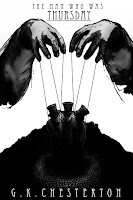Week 1 involved works ranging from Percy Bysshe Shelley's sublime Romantic poem Mont Blanc, which I admired for its Wordsworthian concession that the breathtaking beauty of the natural world can conceal its haunting power, to one of this year's hottest crime thrillers, Mark Billingham's The Killing Habit, which I worried to be a little 'crime by numbers' despite its intriguing narrative decision to take the real-life M25 Cat Killer as its basis. Ultimately, my favourite book of the week was Nora Webster by Colm Tóibín, whose opening chapter was a stunning portrayal of loss which recognised every little facet of the grieving process. I've bought the book, but haven't had time to read it yet, and am also keen to dive back into the worlds of Dickens' The Pickwick Papers and Woolf's Between the Acts in the future. My Week 1 reviews can be found here.
 Week 2 encompassed an even wider spread of texts, allowing me to sample curios such as Carol Ryrie Brink's Baby Island, a work of Robinsonade fiction translating the Crusoe story for younger audiences, and the exceptionally communist Mother, in which Maxim Gorky skilfully balances an allegorical description of the gruelling factory conditions with the human drama of a mother feeling herself losing her son to the blossoming ideology of communism. I've searched in vain for Mother in bookshops, however I have bought Shakespeare's Richard II - mainly due to a sense of duty to read a Shakespearean history, Richard II seeming a solid enough example - and read Graham Greene's Brighton Rock, which, once I'd got my head around what was happening, surprised me by being a probing exploration of loneliness wrapped inside a well-plotted, if slightly unbelievable, thriller. I wouldn't have continued reading this unless obliged to by college, so this is a lesson to not judge a book by its opening chapter. My Week 2 reviews can be found here.
Week 2 encompassed an even wider spread of texts, allowing me to sample curios such as Carol Ryrie Brink's Baby Island, a work of Robinsonade fiction translating the Crusoe story for younger audiences, and the exceptionally communist Mother, in which Maxim Gorky skilfully balances an allegorical description of the gruelling factory conditions with the human drama of a mother feeling herself losing her son to the blossoming ideology of communism. I've searched in vain for Mother in bookshops, however I have bought Shakespeare's Richard II - mainly due to a sense of duty to read a Shakespearean history, Richard II seeming a solid enough example - and read Graham Greene's Brighton Rock, which, once I'd got my head around what was happening, surprised me by being a probing exploration of loneliness wrapped inside a well-plotted, if slightly unbelievable, thriller. I wouldn't have continued reading this unless obliged to by college, so this is a lesson to not judge a book by its opening chapter. My Week 2 reviews can be found here.In the third week, I faltered a little, faced with four texts that I either perceived as weak or thought were just not to my taste - Margaret Cavendish's Poems and Fancies struck me as an intriguing but uninspiring attempt to unite the spheres of chemistry and poetry, whilst E. Lockhart's We Were Liars was so replete with purple prose and tricolons that I didn't have the energy to wait to see retribution fall on the greedy Sinclairs, although I acknowledge that it is (unusually, for a work of contemporary YA fiction) a slow-burner. The two gems came at the end of the week, and I've managed to buy both of them and read the latter: Jennifer Egan's A Visit from the Goon Squad told the kleptomaniac Sasha's tale through an innovative framing device of a conversation with a psychiatrist, and was replete with masterful character work; I can only hope that the other characters in this ensemble piece live up to the stylish and gripping introduction. Having finished reading Shakespeare's convoluted, yet still lightweight, farce The Comedy of Errors, I can say that I found it amusing from the start through to the end, yet ripe for analysis (or possibly for comparison with contemporary texts such as Twelfth Night, with which it shares thematic similarities and motifs). My Week 3 reviews can be found here.
Week 4 picked up some steam and delivered six texts that were joyous to read, all worthy of classic status and each a perfect example of their genre. The week was exciting and enticing; reading what emotional wonders Emily Nasrallah can create in just a few short pages was a transformative experience, as was almost feeling Stephen King building up the tension throughout the climactic opening of Carrie. I've bought G. K. Chesterton's Edwardian thriller The Man Who Was Thursday, hooked by its strong character descriptions and intrigued by its subtitle of A Nightmare, and whenever I've finished reading all my unread books, Edmund Spenser's 1590s epic poem The Faerie Queene is going on the list, as it skilfully blended an intricate structure with fairytale abandon and developed themes. It's incredibly difficult to pick a favourite from this week, but on balance I'd have to go for The Man Who Was Thursday, seeing how it managed to grip me right from the start. My Week 4 reviews can be found here, here and here.
The reading challenge will be back next week (from Monday 10 September; you can follow me on Twitter @Banquetofbooks for notifications and updates), and I'll be back here over the weekend to bring you the menu for what we're going to be gorging ourselves on - until then, I hope you enjoy whatever you're reading!



No comments:
Post a Comment